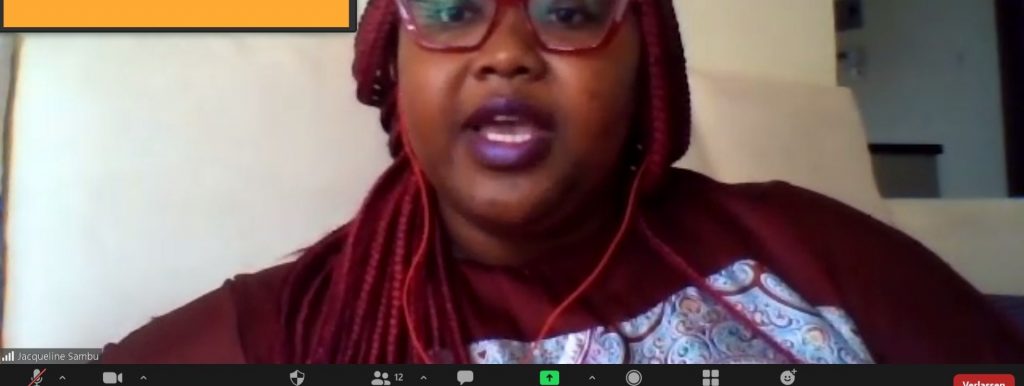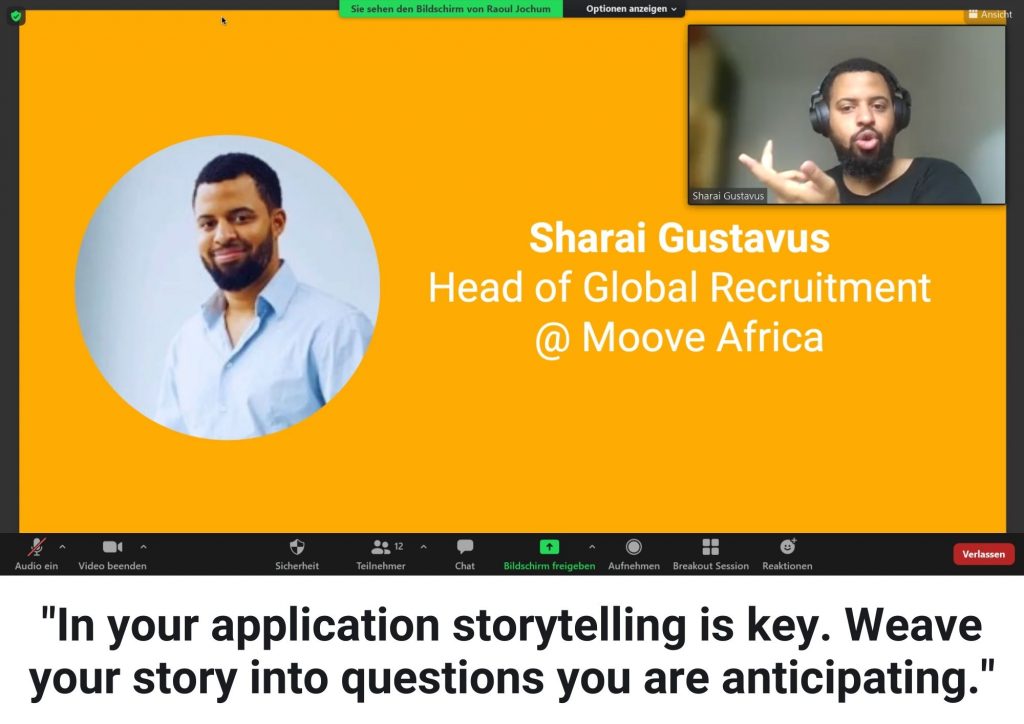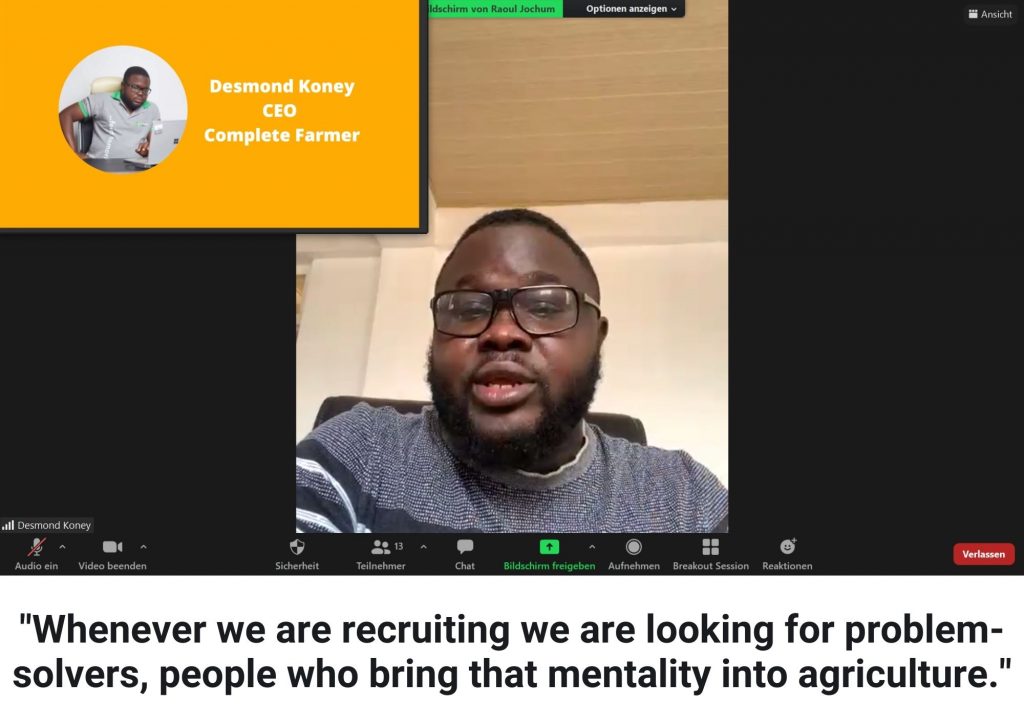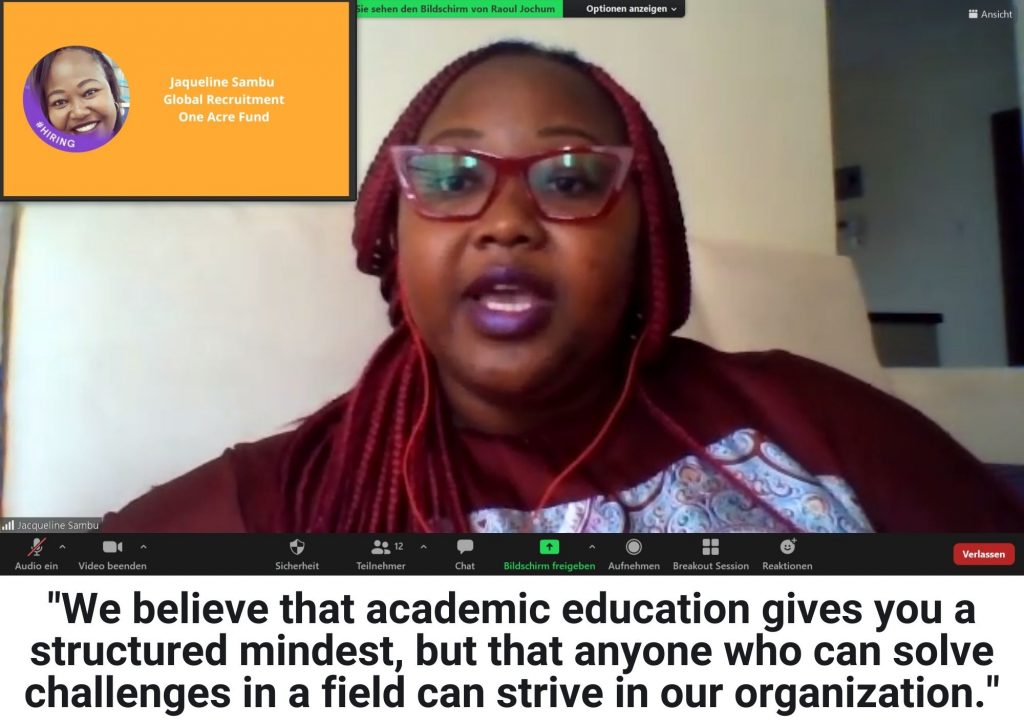News

Insights into our DAAD student career coaching program
Career development should not be a matter of circumstance. Instead, it should become an integral part of every student’s life for as long as there is enough time – before graduation. After all, studying is a period of specializing one’s skills and knowledge.
Phase 1: Reflecting and planning are key…
African DAAD scholars who come to Germany in order to accomplish their Master’s degree at German universities need to be actively challenged. What is your goal? What is it that you want? And if you know what you want, how can you take a strategic approach to reach your goal?
These and many other career-relevant questions which soon-to-be graduates usually do not ask themselves are in fact questions which they should be asking regularly and more frequently. We made it the focus of our 1st Phase. Especially more so in the light of structurally challenging job markets back at home. A degree does not automatically translate into a job.
Besides answering what one’s strengths, interests and wishes are, it is never early enough to make the next step and scout for job opportunities, seeing where to get a foot in the door, making first attempts in networking. This, quite frankly, is another requirement for successful job market entry which many (inter)national students are not aware of. We sensitize them to reflect and plan ahead because self-reflection and planning are key.
… just like understanding employers and their perspective (Phase 2)
What then follows is another crucial question. How can we make sure that reflecting and planning turn into tangible opportunities? By showing the recruiter’s, the employer’s perspective. That is why in our 2nd phase we made sure to get our students three seasoned and experienced representatives from industry-relevant companies to network with.
What do you look for in a student? How should I position myself when there is a gap or a change of focus in my CV? How can I get a job that requires experience if I don’t have any yet? These any many other questions were asked in our second three-day workshop.
We wish to thank our entrepreneurs and recruiters for their insights:

Sharai Gustavus from Moove Africa made sure our students understand the importance of storytelling in their CV as well as in their interviews. Creating a thread that makes you unique and your motivation clear is what matters. Having started out as a professional with an academic degre in African studies, he became who he is today by starting out as a tech recruiter in Berlin. It shows how biographies are no longer linear and that your education can, but does not have to be connected with your profession.

Desmond Koney, who is the CEO of Complete Farmer in Ghana (and beyond because they are expanding heavily) serves as a role model. “I worked for General Motors in Michigan. And I know that some people believe it’s hard to come back home. But, I knew I wasn’t coming back home as the same person. My advice is try to build as many resources where you are now and leverage on those resources when you are back home.”
Asked about what he would recommend he told: “So I had already built an impressive network of investors, talent, and friends in order to have a competitive advantage. Yes, there will still be challenges, but it will make it easier. I came home with this type of entitlement, with my education and so on. But when you come home you still need to compete globally.”
Our student Isabella asked: “What are your biggest fears?” He responded: “As entrepreneur you always have fears. I knew I need to build something profitable. Getting the first funding was the biggest fear then. Now it is getting the right talent. Because when you are scaling you feel the need immediately.”

Jaqueline Sambu from Global Recruitment at One Acre Fund in Kenya was our third expert for the workshop. “In your work exerience you need to write down in a very good way the problems you solved. I rarely look at education. We sort of believe that academic education gives you a structured mindest, but we believe that anyone who can solve challenges in a field can easily strive in our organization. That is why we typicaly give you cases to help us scale. Also, always show that you understand the organization which you are applying for. When you look at a role and you believe you can tick most of the boxes then go for it – even if you don’t have the required experience yet.”
When asked about the question whether one should return home after graduation in Germany, Jaqueline gave a clear answer: “We have a lot of problems in Africa. I believe you need to ask yourself: Do I see myself as part of the solution? Then, yes! The market is there, you just have to look for it.”
We wish to thank all three experts for their time and openness towards boarding on our students after graduation.
Our coaching program is part of a project by